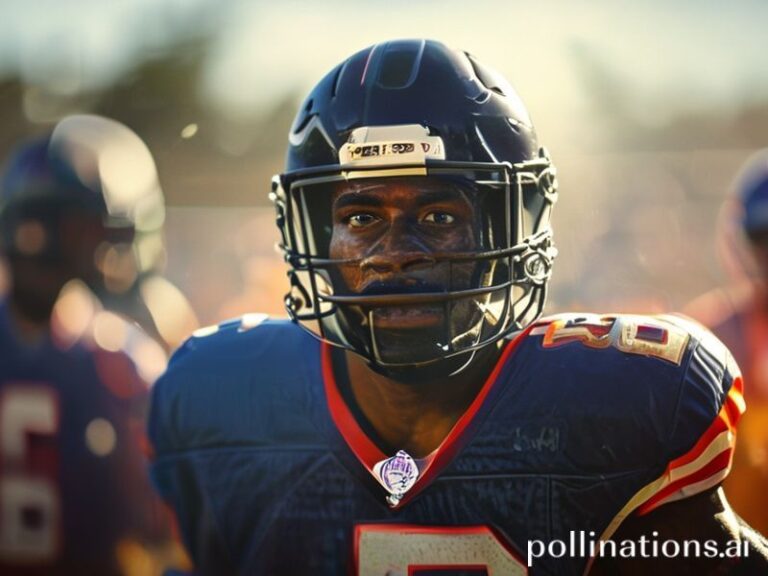Zubimendi’s Rejection of Football’s Super-League Carousel Is the Moral Rebellion We Didn’t Know We Needed
ZUBIMENDI: THE MIDFIELDER WHO SAID “NO” TO ARSENAL, YES TO THE APOCALYPSE
by Our Man in the Bunker
San Sebastián – While half the planet was busy arguing about whether the Doomsday Clock should be moved to 89.5 seconds to midnight or simply replaced by a live feed of Elon Musk’s Twitter drafts, Martín Zubimendi quietly signed a lifetime extension with Real Sociedad. The announcement slipped out on a sleepy Basque Tuesday, sandwiched between Spain’s latest corruption scandal and a TikTok of a cat playing the xylophone—both of which trended higher.
From Lagos to Lausanne, analysts are now asking: if a 25-year-old can reject Arsenal, Barcelona and, if the tabloids are to be believed, the gravitational pull of the Premier League’s petro-dollars, what else might humanity refuse? World peace? Unlimited breadsticks?
Zubimendi, for the uninitiated, is the metronome in La Real’s midfield, a player whose heat-map resembles a Rorschach test that psychoanalysts interpret as “mild commitment anxiety.” He breaks up play the way Swiss bankers break up marriages—efficiently, discreetly, and with impeccable paperwork. His decision to stay is therefore less a contract renewal and more a geopolitical act of defiance: the sporting equivalent of Switzerland declaring war on the concept of FOMO.
Global implications? Start with the obvious. The Premier League’s brand managers—those caffeinated children in quarter-zips—have spent the last decade convincing us that English football is the only moral compass left in a rudderless world. Zubimendi just held up that compass, noted it was pointing toward the gift shop, and calmly snapped it shut. Cue panic in the spreadsheet factories of Manchester and West London.
Meanwhile, in the Bundesliga, Bayern executives were last seen Googling “Basque loyalty—how does it taste on pretzels?” In Paris, PSG’s Qatari owners have reportedly offered to rename the Bay of Biscay “ZubiBay” if the midfielder will kindly reconsider. Their next proposal is rumored to involve placing a clause in his contract that obliges the Atlantic Ocean to pay image rights.
But let’s zoom out. The Basque Country itself is a place that invented its own language just to confuse Google Translate, so perhaps we shouldn’t be surprised. Here, local identity is a contact sport and loyalty is measured in blood sausage. When Zubimendi says he wants to “feel the rain on my face in Donostia,” he’s not being poetic; he’s reminding global capital that not everything can be arbitraged into a JPMorgan ETF.
And then there is the broader existential angle. In an era where passports are collectibles and players retire to Dubai influencer academies, choosing to stay home feels almost revolutionary—like using a paper map or paying taxes. Every transfer window now resembles a dystopian auction house where human beings are bundled into tranches of debt like subprime mortgages. Zubimendi’s rejection might be the closest modern football comes to a general strike.
Of course, cynics will note that Real Sociedad inserted a modest release clause—rumored to be €60 million—so the escape hatch remains greased. But symbolism counts. In a world where even the Arctic has accepted sponsorship from fast-fashion brands, a single “no” reverberates louder than a thousand choreographed goal celebrations.
Conclusion? Somewhere between the melting glaciers and the next crypto-fueled war, a kid from Zarautz reminded us that opting out is still an option. It won’t stop the planet from overheating or the algorithms from harvesting your dreams, but for one brief, beautiful moment, the transfer rumor mill experienced its own little ice age.
And in the bunker of late capitalism, that almost feels like a win.







